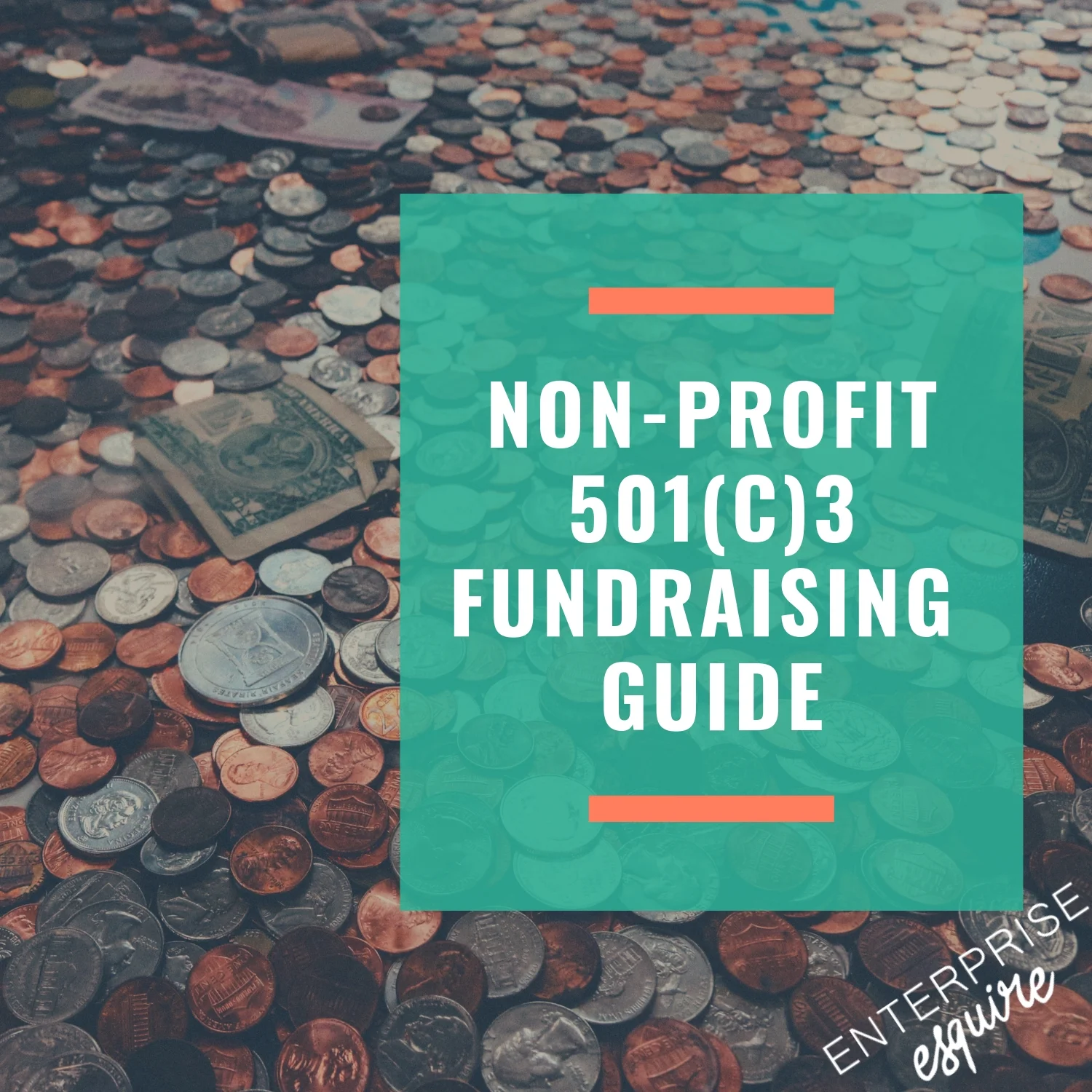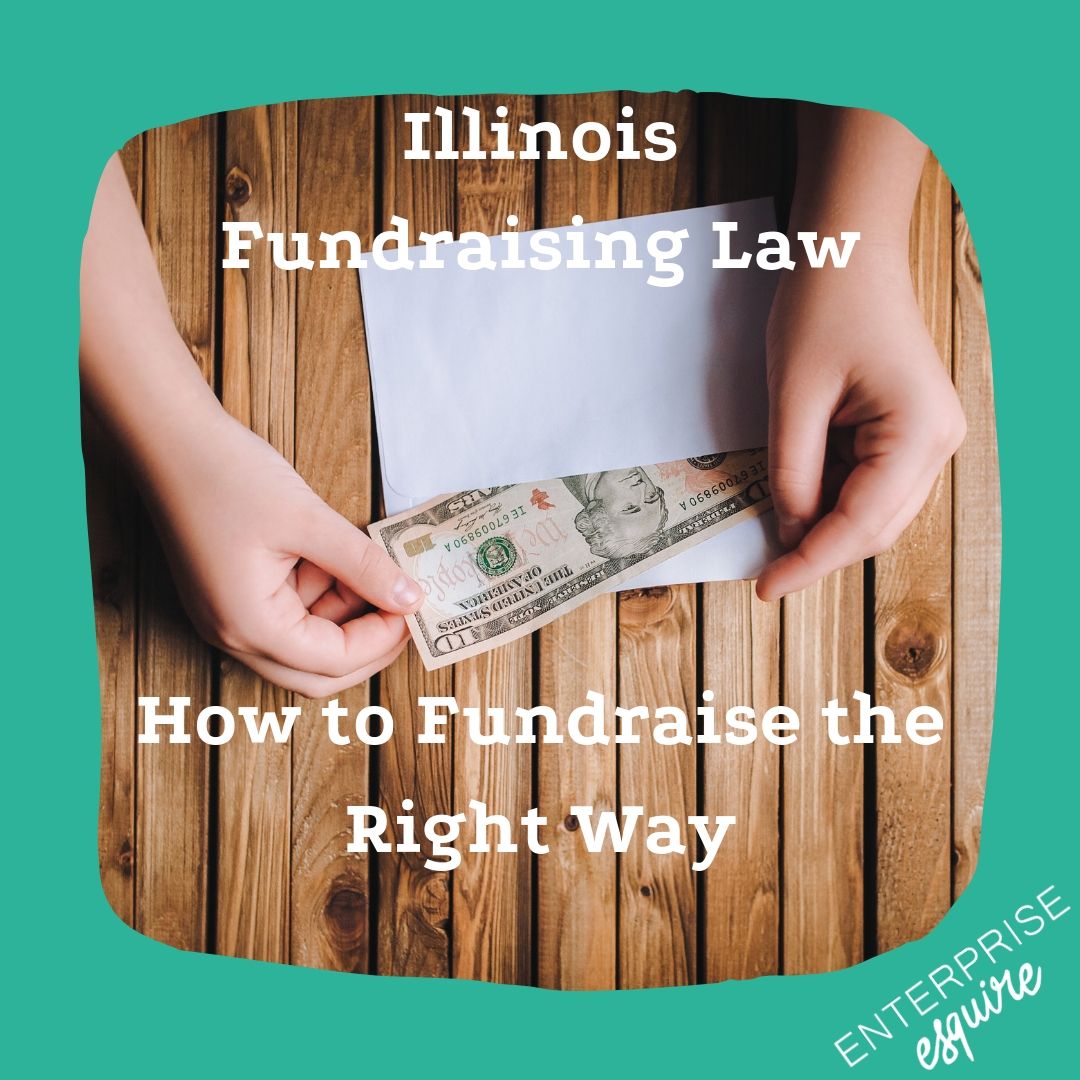Non-Profit | 501(c)3 - Guide to Fundraising
If you are on the board of directors for a nonprofit, or volunteer for a charitable organization in your community, you know that fundraising is the lifeblood of the nonprofit sector. If you are a donor, it may seem like there is always someone asking you for $5 here and $20 there for every cause imaginable. On a local scale, nonprofit fundraising can seem like a collection of small actions that add up to a big impact. In fact, the impact may be even larger than you realize. The nonprofit sector is one of the fastest-growing parts of the U.S. economy and employs approximately 10% of the U.S. workforce.
What is Nonprofit Fundraising?
In an industry this large, it’s hard to imagine how little people really know about nonprofit fundraising. What’s even more shocking is how few nonprofits take the time to understand and create systems for legal compliance and risk management when it comes to fundraising.
In the United States, many nonprofit organizations benefit from special tax and other treatment. In exchange, nonprofits agree to be held accountable to greater oversight, regulation, and reporting requirements than for-profit businesses. Before your organization solicits any donations, it is essential to familiarize yourself with all relevant regulations:
❏ IRS Fundraising Guidelines
❏ Charitable Solicitation Registration with State
❏ Professional Fundraising Registration
❏ Ethical Fundraising Practices
❏ International Fundraising Best Practices (US Dept of Treasury, Voluntary Best Practices for U.S. Based Charities)
Keep your tax status in mind when you are soliciting donations. You can still ask for donations even if you aren’t a tax-exempt organization, but you cannot tell donors that their donations are deductible and most grantmakers won’t donate to your organization. If your organization is not tax-exempt, consider a fiscal sponsorship relationship with a tax-exempt nonprofit (this should always be done with the oversight of an attorney).
Nonprofit Fundraising Legal Tips
To keep your nonprofit legally compliant and resilient while fundraising, take these tips into consideration:
Keep a Consistent Mission. Your stated mission in your governing documents (Articles of Incorporation, Bylaws, and IRS exemption application) should be consistent with your mission stated in your fundraising materials.
Register and Remain in Compliance. Register in all states where you are actively fundraising. Most states require that these registrations be updated annually. Create a system to keep these registrations up-to-date and in compliance.
Separate Designated Funds from Non-Designated Funds. Some contributions are made for a specific purpose, and these funds require special management. Properly manage all designated funds, including restricted gifts and endowment funds, by keeping them separate from your general donations. These restricted funds will need to be reported separately each year as well.
Always Say Thank You. Saying thank you to your donors is kind, but it also provides you with an opportunity to ensure all donors receive receipts for their donations. Incorporate good record keeping practices into showing gratitude to your supporters.
Think About the Risks. Any organization is exposed to some amount of risk. If, however, your fundraising activities include special events or the labor of volunteers, your organization is in particular need of a risk management policy. Have a plan in place (and insurance!) to protect the organization from possible liabilities.
Pay Attention to All Registration Requirements. Many states require additional reporting and/or registration for nonprofits that hire professional fundraisers. If you are working with a professional fundraiser, check your state’s requirements and make sure that all registration requirements are met.
Always, Always Tell the Truth. We all know that a certain amount of funds raised by nonprofits go to administrative costs, including fundraising expenses. There is no specific percentage of funds raised that have to go to charitable work, but there are requirements that charities do not commit fraud. No intentionally misleading statements!
Protect Donor Data. Privacy and security are important to consumers and charitable donors alike. Maintain a system that protects your donors’ data.
Nonprofit Fundraising No-Nos
Don’t Give Legal or Tax Advice to Your Donors. The tax exemption and deduction laws are always changing, and it isn’t your responsibility to advise donors on whether and how they can receive tax deductions. Refer all questions to an attorney or CPA.
Not all Gifts are Good. Some donations come with more burdens than benefits. For example, your organization is not necessarily set up to accept all donations of real estate and personal property. Create a gift acceptance policy that outlines when your organization accepts and rejects gifts.
Don’t Assume that Nonprofits are Above the Law. Nonprofits are bound by the same laws as any other business, even when they are being represented by volunteers. Make sure that all volunteers are trained on your organization’s mission and message to avoid misrepresentations, intellectual property infringement, and any violations of laws or contract provisions.
Don’t Give Anything of Value in Exchange for Donations. In general, nonprofits are not in the business of giving donors anything in return for donations. Some nonprofits choose to provide a small token of appreciation or gift to donors. If your organization chooses to do so, make sure you are providing a receipt that offsets the value of the gift. It is also ok to give recognition in exchange for donations, but the donor cannot retain any right to receive a monetary return for the donation. This is not an investment.
What Does Nonprofit Fundraising Look Like?
Individual giving makes up nearly three-quarters of all charitable contributions nationwide. But, after the 2018 tax law, this may start to change. To ensure a steady flow of funding, the most important thing to do is diversify your fundraising sources. Consider:
● Direct Mail Donations
● Online Solicitations (Crowd Funding)
● Event Donations
● Recurring Donations
● Phonathon
● Annual Campaign Donations
● Planned Gifts
● Company Matching Gifts
● Corporate Grants
● In-Kind Donations
● Community Foundation Grants
● Private Foundation Grants
● Governmental Grants
Build Your Support Team by Working with an Experienced Nonprofits Attorney
Fundraising is a particularly fraught area for nonprofits. There is plenty of governmental oversight and a multitude of opportunities for mistakes. Working with a professional in the nonprofits sector is a great way to get clear policies on your books and ensure that your fundraising strategies comply with all regulations. At Enterprise Esquire, we have been working with nonprofits for over 15 years. We have the real-life experience and expertise to help you set your organization up for success while avoiding some nasty pitfalls along the way. Click here to set up a free, 15-minute consulting call.







